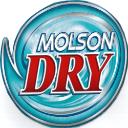Yahoo Answers is shutting down on May 4th, 2021 (Eastern Time) and beginning April 20th, 2021 (Eastern Time) the Yahoo Answers website will be in read-only mode. There will be no changes to other Yahoo properties or services, or your Yahoo account. You can find more information about the Yahoo Answers shutdown and how to download your data on this help page.
Trending News
does brake fluid need to be changed in a car?
was told by service mgr that brake fluid was dirty and I needed complete brake line flush for about $100
9 Answers
- Echo ChamberLv 61 decade agoFavorite Answer
Some manufactures recommend it at certain miles and some do not. I recommend it for all cars. By keeping the fluid new and clean you are lowering the chances of contamination. Also brake fluid is hydroscopic and can absorb some water. That is not a good thing because water can boil at much lower temperatures than the fluid causing not so good brake performance. Also you are inevitably bleeding the brakes of air when you do this and that keeps the pedal at a firm positive feel. So, go ahead and do it; although it is not super-necessary to do it immediately for safety reasons.
- Anonymous6 years ago
This Site Might Help You.
RE:
does brake fluid need to be changed in a car?
was told by service mgr that brake fluid was dirty and I needed complete brake line flush for about $100
Source(s): brake fluid changed car: https://tr.im/uccj5 - 7 years ago
If the brake fluid reservoir is clear and does not need to be opened to check the fluid level, then it can not attract moisture. If it is never opened then there it a total scam and waste of money to flush. This service was never recommended 30 years ago but yet we still use the same Dot 3 and 5 fluid. Why the change? $$$$$$$$$$$ for the service stations
- HarryLv 51 decade ago
Yes, brake fluid does need to be changed at regular intervals.
Glycol-based brake fluid (such as DOT 3 and DOT 4) is hygroscopic (not hydroscopic), which means that it will absorb water, pulling moisture right from the air. This is why it is important to keep the brake fluid reservoir tightly sealed. If the fluid absorbs too much water, it can boil, resulting in brake failure. DOT 5 brake fluid is silicon-based, and does not absorb water, but making the switch involves flushing all of the glycol-based brake fluid and very, very thoroughly cleaning all of the brake system components before putting in the new DOT 5 brake fluid. It is usually far easier to perform periodic flushing of the system, continuing to use DOT 3 or DOT 4 fluid.
- How do you think about the answers? You can sign in to vote the answer.
- 1 decade ago
As Lab said, Brake fluid does indeed absorb moisture and it is recomended you get it flushed. If you open your cap and the fluid doesnt look clear anymore, then its time to get it changed. Not doing so can cause rubber seals and lines to deteriorate as well as the possibility of brake failure (moisture and metal parts dont mix!). Brake flushes are failry easy to do, the system is pressurized and each bleeder valve is bled out until clear fluid comes out.
- LabLv 71 decade ago
Brake fluid is hydroscopic and absorbs moisture from the air, reducing it's boiling point (trust me, brakes get hot and so does the fluid) Many other contaminants (from rubber seals, the steel lines, etc.) also contaminate the fluid, so not a bad thing to do.
- 1 decade ago
no, only if you have a loose fitting cap on the reservoir, and then only if you look in it and see water gathered at the bottom.
ADDED: lab has a good point, very technical, and correct in his statement. however i have personally owned vehicles for ten or more years that never had the brake fluid changed, and no problems. moister is the killer here. it defiantly won't hurt to change, but they get your car in then tell you you need bleeders,(these are usually rusted after a few years but don't affect braking) or worse yet wheel cylinders and calipers. $100 can become $500 real fast. if your brakes are working ok i would recommend against it. (i accept emails through answers if you need any more information on this matter)
Source(s): i've worked on cars and trucks fo over 30 years. on my own, at reputable garages, and at shady unscrupulous garages. i hated the last, seeing how people were being ripped off. - 1 decade ago
Absolutely. It should be changed roughly every 20,000 miles or every 2 years. Whichever happens to come first.
- Anonymous1 decade ago
yes





